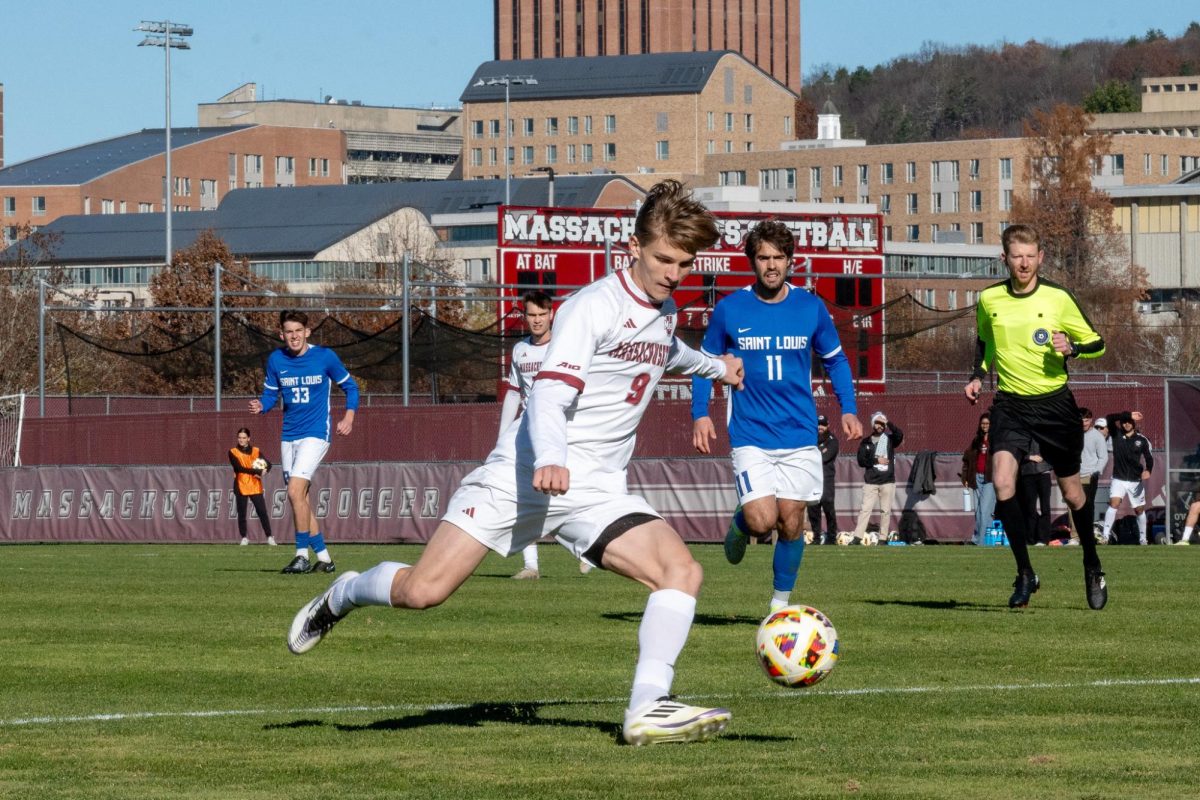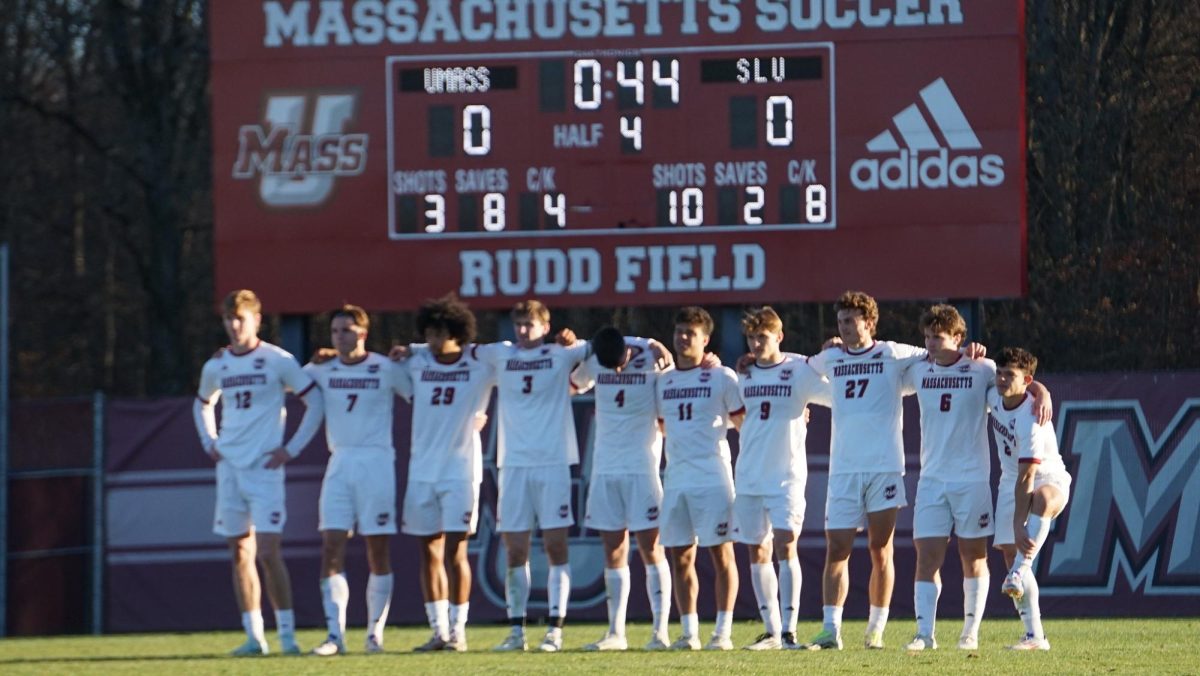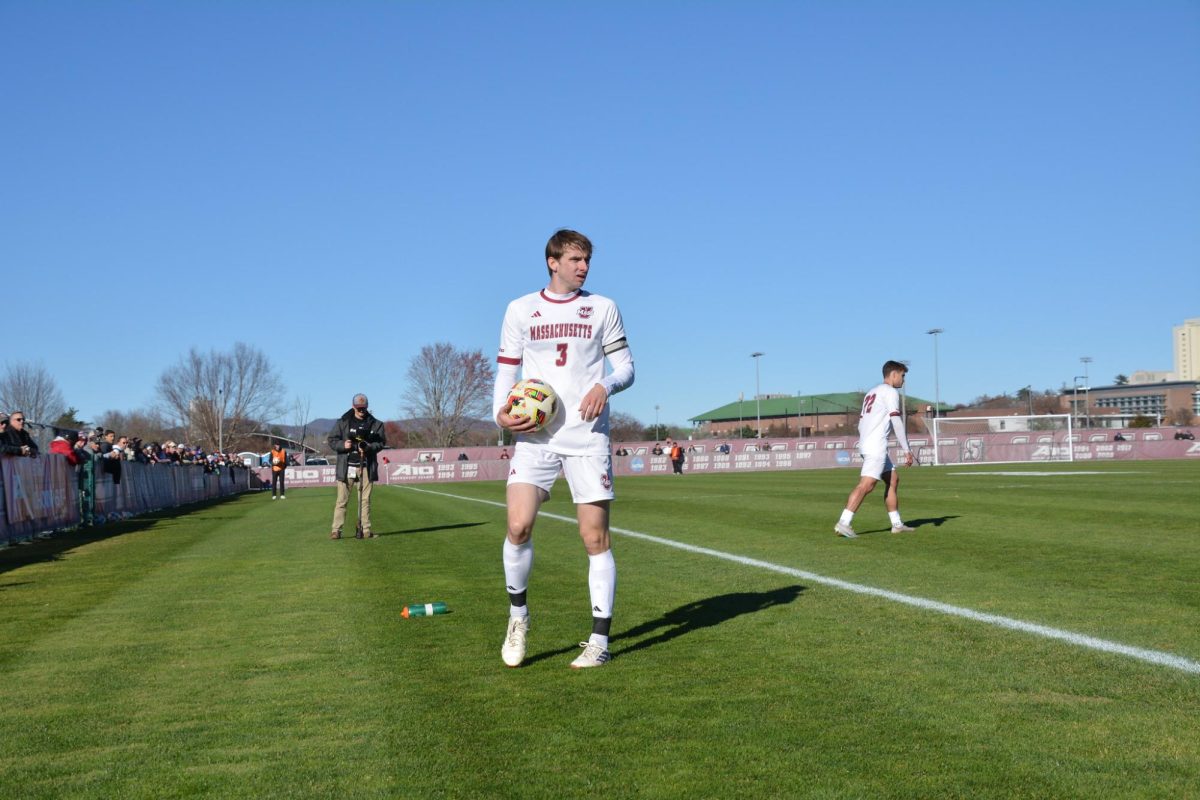
Christopher James Piekos, a member of the Marine Special Forces Reconnaissance team, entered into a building with two other teammates in search for Abu Musab al-Zarqawi, a leader of Al-Qaeda in Iraq.
The date was May 17, 2006.
Piekos and his team received information from the CIA about al-Zarqawi’s whereabouts and were sent in to take care of the insurgents loyal to him and capture the Jordanian-born terrorist.
On the other side of a fake wall, 25 Iraqi combatants waited for Piekos and his team to make a move before striking. Once they moved, the 25 insurgents, armed with grenades and rocket-propelled grenades (RPGs), unloaded on the Marine group, including one solider who took enough bullets to kill him before he hit the ground.
“He just got peppered,” Piekos remembered.
While Piekos ducked for cover, his still-breathing teammate was knocked unconscious by five bullets, one of which grazed the top of his head.
Piekos remained in the building for three to four minutes, but claimed the time “converted into a lifetime.”
“That night was insane,” Piekos said. “I remember the feeling [that] I was just about to get smoked. It’s like a weird noise. You’re waiting to see if you’re going to get shot. You can never have [the feeling] anywhere else. [It’s] an extreme case of vulnerability, but peace at the same time.”
After rushing out to inform his officers of the battle, Piekos returned to the fight scene, saved his fallen comrade and continued in the firefight.
“It went from midnight until the sun came up,” Piekos said.
When the sun came up the following morning, Piekos’ life changed significantly.
“Everything was magnified by 100 [percent],” Piekos said. “Anytime something like that happens it would open your eyes a little bit more.”
Four years later, Piekos was a leader on a new team on a much different battlefield, as he started for the Massachusetts men’s soccer team this season. His journey began many years before donning the maroon and white jersey, however.
Piekos started playing soccer when he was younger and played all through high school, including competing for club travel teams and playing year round.
I grew up in a town that was kind of a soccer-dominated town,” Piekos said of his home, Sinking Spring, Pa. “Growing up, most kids played soccer and then baseball in the spring. I really enjoyed it from a young age and just kept going with it.”
Soccer continued with him into high school, as he moved to Massachusetts and attended Wachusett Regional High School, and was his main passion before the terrorist attack of Sept. 11, 2001 changed his life. The attacks gave Piekos, 26, a new sense of patriotism and, along with his friends, made him think about joining the military and fighting for the country.
“I never really had that must interest until senior year, [I] started really thinking about it,” Piekos said. “My family was really [against it].”
His family’s disapproval of the military is what sent Piekos to Rivier College in New Hampshire. Piekos decided on attending Rivier because they offered him a chance at standing between the nets. While other Division I schools neglected to give Piekos a starting position, Rivier offered him a chance to succeed.
“At the time, I just kind of wanted to play; I didn’t want to be sitting on the bench,” Piekos said.
Even though he earned the starting spot between the posts, Piekos still didn’t feel at home on the pitch. He wanted to be in another place, fighting a different battle.
“I really enjoyed it, but at that time it was right when the war in Iraq was really heating up,” Piekos said.
With his parents still showing disapproval of going over to fight in the war, Piekos decided to take matters into his own hands.
“It was like alright, now it’s time to make my own decisions and do what I want to do,” Piekos said. “I enjoyed soccer at the time, but I didn’t want to pass up that opportunity to serve my country and be a part of something overseas.”
When his mind was made up, Piekos went home and declared he would be joining the Marines. His parents weren’t thrilled, but Piekos kept his head high and pursued his aspiration.
“I always knew what I wanted to do, so I wasn’t concerned with which branch I wanted to join,” Piekos said. “I knew who I wanted to be with and what unit I wanted to be with. That was a goal I set for myself and I didn’t know how it was going to happen, I just knew that was what I wanted to do, and so I just kept pursuing that.”
Piekos went into a recruiter’s office and asked to be hooked up as best he could. He knew he wanted to be a part of the recon team of the Marines.
“I’d known when any war battle kicks off the first unit that actually goes in is the Marines,” Piekos said. “That’s their job, they’re the tip of the spearhead. The reconnaissance unit is the ones past the tip. They’re the ones behind enemy lines, they’re the ones figuring out the enemy’s disposition and that kind of stuff. That’s what I wanted. I didn’t want to just be the tip of the spearhead I wanted to be beyond that.”
With such a high goal in mind, Piekos knew he had his work cut out for him. He attended boot camp as well as infantry and training schools. Examiners came in and tested him for his eyesight, physical fitness and other types of exams to prepare him for the recon squad. But for Piekos, it was all a part of the plan.
“I kind of wanted to be a part of that kind of brotherhood and that kind of community, so that’s what I strived to be,” Piekos said.
Once he was prepped, he went through another series of training fields in order to ready himself for recon school.
“Then, for another two-to-three months, they put you through pretty much hell, like haze-fests,” Piekos said.
Hellish torture ended for him once he finished training in Virginia Beach and then completed his specialty schools, which included sniper school, prisoner of war training and other training schools.
“You had to be willing to do any kind of operation, whether it’s sniper missions or kicking in doors and capturing bad guys,” Piekos said. “You definitely had a whole big spectrum. We had to hone in on each individual type of mission. It was fun.”
Piekos started his first deployment in 2004, when the Marines were looking to take back the central city of Fallujah. In a battle for the city, believed to be home to some 30,000 insurgents, Piekos and his fellow new crew were thrown into combat immediately.
“We were just thrown right into the mix,” Piekos said.
Times were tough for Piekos and his crew after being plopped right into the battle field.
“When you’re over there, you can be out for three weeks at a time without a shower, or getting two hours of sleep every three days; it’s a really unique atmosphere,” Piekos said. “It really builds a lot of character, you learn a lot about yourself.”
The rest of his first deployment was straight combat for Piekos and his crew. Entering a war-torn and decrepit city of Fallujah, Piekos did nothing but partake in firefight after firefight.
“You weren’t dealing with the hearts and minds of the country, because all the civilians were gone,” Piekos said.
Piekos ended his tour and immediately went right back to work to continue improving his military skills. With a second deployment looming, he joined different training schools to get ready for his second tour.
On his second tour in 2006, Piekos returned to Iraq to find a much different war than when he left. The insurgents had improved their game, which forced the Marines to do just as much.
“It was kind of like playing chess with the insurgencies,” Piekos said.
The second tour included May 17, the most intense night of Piekos’ life.
The second tour was enough for Piekos. Once his deployment ended, he returned back to the States and instantly took a break from life and reset his goals, which included attending college before he was 30.
Having played for the Marines’ soccer team during his stay in Iraq, Piekos instantly became attracted to the idea of competing for a college soccer team as well.
At first, he had trouble finding a program. He tried applying to the University of Massachusetts in July 2007, but had no luck. After talking with a congressman he knew, however, Piekos instantly received admission.
Always striving to be his best, Piekos pushed himself to try and join the Maroon and White. At the time, the Minutemen boasted a strong team (it was the same season the team made it to the College Cup) which included eventual goalkeeper for the New England Revolution Zack Simmons.
With the odds stacked against him, Piekos continued to push to be the top of the spear, as he once was before. He did just that, convincing UMass coach Sam Koch to bring him on the team.
“Benny thought it was a joke,” Piekos said of his teammate Ben Arikian.
The rest, of course is history.
But as for the future, Piekos has been having thoughts of returning to fight the good fight overseas, though he believes another deployment might be “pushing his luck.”
So what’s next for Piekos? The former Marine is looking at professional soccer as his field of choice.
“I really want to see where it ends,” Piekos said. “It’s something I want to see how high I can go. Right now, I want to pursue soccer while I’m young.”
For someone who has always strived to be the best, and has always succeeded at achieving his goals, the future may place Piekos at the top of another spearhead.
Herb Scribner can be reached at [email protected].












